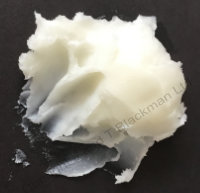 |
Cold Wax Painting Medium |
|
 |
Cold Wax Painting Medium |
|
How much Zest-it Cold Wax Painting Medium?
Answers to some of the 'how to' questions about using Cold Wax.
|
Zest-it.shop Cold Wax Painting Medium |
Why does your Cold Wax Painting Medium have Linseed oil in it? We were asked 'why does your Cold Wax have Linseed oil in it?' Beeswax wax on its own can become brittle over time, Linseed oil gives to the Cold Wax an element of flexibility. Our product has been put through many tests since development first started in 2009, to ensure it gives good results over time when used with oil paint. Museum quality Cold Wax needs thorough testing before going to the Conservators. Because oil and wax can be painted onto a flexible surface, like a canvas, the Linseed oil supports that probable movement. This is an important aspect of the media for those wishing to add wax to oil paint but primarily paint with oils. |
|
Can Cold Wax be mixed with metallic powders? The Zest-it Cold Wax Painting Medium can be mixed with many dry pigments and media, including metallic. Marble, Limestone and Slate Dust, Graphite Powder and Sand are excellent additions to give impasto and character to the work, these can also be added to a gesso to give surface texture as a base for oil and wax painting. It's difficult to give a fixed proportion of wax to an addition, each person and piece of work is different, add what feels right for your work, be free and experiment. All our 'additions' are from renewable resources in the UK, our Sand is very fine and clean - be careful what you use! |
Cold Wax Painting Medium and Copper powder |
|
Cold Wax and Oil on Canvas |
How much Cold Wax to mix with the oil paint? In the example on the left, the background area was painted with a brush and oil paint that was 'more paint than wax'. Whereas the foreground had some brushwork, but there was also a lot of knife work, the texture was wanted in particular for the grassy bank on the right-hand side, this resulted in 'more wax than paint'. The wax can give a translucent look to the oil/wax mixture, the more wax that is added the more this will be apparent. Too much wax and the intensity of the original oil colour will be lost, as will the opacity. Do you read 'blogs' try - the false information about Zest-it Cold Wax Painting Medium |
|
Does it have to be a rigid surface, like wood panels and canvas boards? Wax does not have to be painted on a rigid surface. The deciding factor is the ratio of oil paint to wax and the absorbency of the surface. If you wish to paint with oil paint, using wax as an addition for texture, then canvas or paper are very acceptable. There is a proviso, a canvas that has a 'plastic' look and feel to the weave will not allow the wax to remain on the surface! Some of the tests we carried out involved different canvas surfaces and our finding were that the wax left the surface of the plastic finish. Some may lay the blame on the wax but the fault was the 'plastic' non-absorbant surface. There was a repelling by the plastic acrylic surface finish and being non-absorbent the wax had nothing to cling to, there is no 'tooth' - very necessary for both oil paint and Cold Wax. Working with Cold Wax on a rigid surface allows much more wax to be used and at thicker overall finish. The weight of oil paint and wax applied to some birch ply boards would make even the trees groan! Rigid surfaces also allow more freedom to inscribe and gouge the wax, add particulates and other objects, also more depth of texture can be accommodated without concern with the overall stability of the surface. |
|
|
|
Copyright 2001 - 2025 © Jacqui Blackman. All Rights Reserved
Worldwide.
The information contained herein is the Intellectual Property of
Jacqui Blackman and
J. & T. Blackman Ltd., and is supplied without liability for
errors or omissions.
Zest-it ® and its ![]() logo are Registered Trademarks.
logo are Registered Trademarks.
No part may be reproduced or used except as authorized by
contract or other written permission, unless stated otherwise.
The copyright and the foregoing restriction on reproduction and
use extend to all media in which the information may be embodied.